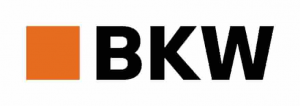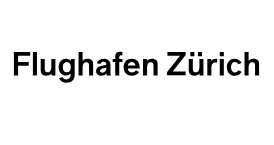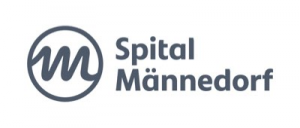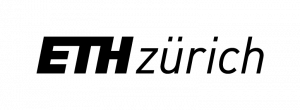ETH Zurich | Space and the Gravitational Physics Research group led by Prof. Michele Vallisneri in the Dept. of Physics at ETH Zurich invite applications for a Software Engineer position (for one year, with a prospect of becoming indefinite) on the development of the data-analysis suite and pipeline infrastructure for the upcoming gravitational-wave space observatory LISA.
Project backgroundIn 2015, the LIGO-Virgo collaboration achieved the first detection of high-frequency gravitational radiation, confirming Einstein's 1916 results, and establishing the existence of binaries of stellar-mass black holes. In the mid-2030s, the Laser Interferometer Space Antenna (LISA) will begin to observe thousands of low-frequency gravitational-wave sources, including ultracompact stellar-remnant binaries in the Milky Way, and the mergers of massive-black-hole binaries across cosmic time. Identifying these sources is a central part of the LISA data analysis challenge.
The ESA-funded LISA will rely on an extensive ground segment for data processing and analysis. The LISA ground segment is a distributed facility (the LISA Distributed Data Processing Center), for which LISA member states contribute national centers with specific commitments and deliverables. In this international context, the newly formed Gravitational Physics Research Group at ETH Zurich leads the implementation of the Swiss LISA Data Center, in collaboration with Profs. Giardini and Robertsson's research groups in the Dept. of Earth and Planetary Science.
This Software Engineer position is embedded within the ETH Zurich | Space "Project Hub", a centralized pool of systems engineers, software developers, and project managers that supports ETH-led space efforts. The Project Hub enables research groups across departments to benefit from high-level engineering and project expertise, positioning ETH Zurich as a strong partner in international space missions.
Job descriptionAs part of the Gravitational Physics group at ETH Zurich and ETH Zurich | Space, you will contribute to the Swiss LISA Data Center, managed by Dr. Arianna Renzini. The Swiss LISA Data Center and Gravitational Physics group are committed to delivering state-of-the-art approaches to tackle the upcoming LISA data analysis challenges, exploring deep learning applications alongside traditional methods.
Your responsibilities will include a combination of the following:
- Designing, developing, and maintaining data-analysis tools and pipelines for the Swiss LISA Data Center, ensuring their integration and inter-operation within the LISA Distributed Data Processing Center.
- Prototyping and implementing data-science approaches and applications for LISA data.
- Planning and deploying HPC infrastructure for large-scale gravitational-wave data analysis for LISA.
- Supporting additional ETH Zurich | Space projects where software engineering and data expertise are required.
Your primary goal will be to contribute software and technical support to the Swiss LISA Data Center and the international LISA Distributed Data Processing Center, facilitating the scientific success of the LISA mission. You will engage with an interdisciplinary, diverse team working on the future of gravitational-wave science, focused on providing innovative solutions, technical development, strategic planning, and attention to the long-term cultural impact of our field.
ProfileWe are considering different profiles for this position. An
ideal candidate is
- A: A research scientist holding a PhD in physics or astronomy, with a strong background in software development and machine-learning applications, demonstrated through contributions to open source projects and production software for scientific data analysis.
- B: A computer scientist or software engineer specialised in algorithmic optimisation and data structures, with demonstrated accomplishments in the context of astrophysical and/or space-science data processing.
The successful candidate will hold an MSc or greater degree in computer science or engineering, or a PhD in applied mathematics, physics, or related fields, with extensive computational experience. Excellent English communication skills are also required, as well as strong interpersonal skills, openness to feedback, and the ability to communicate effectively with colleagues from diverse backgrounds.
Furthermore, the candidate will have a strong background in the following, as evidenced through publications, open-source software projects, or proven contributions to existing data-analysis systems and infrastructures:
- Software development for scientific data analysis, with a focus on signal processing and/or survey datasets.
- ML & AI techniques and applications.
- HPC and orchestration of scientific data processing workflows.
- Parallel computing (GPU & CPU).
- good software engineering practices for scientific software (version control, testing, continuous integration, documentation).
Desirable skills include:
- Experience with space science/astrophysical datasets.
- Scientific data management, curation, and documentation.
- Data-visualisation strategies and applications.
- Development and deployment of graphical user interfaces.
A knowledge of gravitational-wave science will be valued but is not initially required for this technical role.
We offer - We offer a dynamic, challenging role within an inspiring environment at a world-renowned university.
- You will be part of a cross-disciplinary hub that supports flagship missions such as LISA, LIFE, LunarLeaper, and Solar-C, ensuring continuity and excellence across ETH's space portfolio.
- Career development is central to our culture, and we are committed to supporting your professional growth.
- ETH Zurich is regularly rated as the best university in continental Europe and Zurich itself is one of the most livable and attractive cities worldwide.
- Many people at ETH Zurich and within our research group have an international background.
- English is our common language.
> Working, teaching and research at ETH Zurich
We value diversity and sustainability In line with our values , ETH Zurich encourages an inclusive culture. We promote equality of opportunity, value diversity and nurture a working and learning environment in which the rights and dignity of all our staff and students are respected. Visit our Equal Opportunities and Diversity website to find out how we ensure a fair and open environment that allows everyone to grow and flourish. Sustainability is a core value for us - we are consistently working towards a climate-neutral future .








